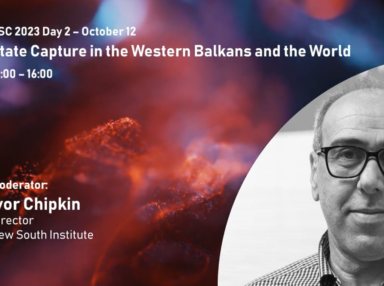Understanding State Capture: The Role of the New South Institute in Unravelling South Africa’s Deep-seated Issues
The New South Institute (NSI), formerly known as the Government and Public Policy (GAPP) think tank, has long been at the forefront of public policy research and analysis in South Africa. Our keen focus on matters related to governance has led us to delve into critical areas of study that are shaping the country’s future.
A key part of our body of work involves understanding the issue of state capture. State capture refers to a way of securing and retaining political office using unlawful, often criminal, and even violent means. It’s a complex and layered phenomenon that requires rigorous research and deep analysis to comprehend fully.
In this regard, our co-founder and Executive Director, Ivor Chipkin, submitted a comprehensive report to the Zondo Commission, one of South Africa’s most critical judicial investigative commissions. The Zondo Commission, also known as the Judicial Commission of Inquiry into Allegations of State Capture, Corruption, and Fraud in the Public Sector including Organs of State, was established by former President Jacob Zuma in 2018. By June 2022, the commission had published its final report, after collecting substantial amounts of evidence and interviewing hundreds of witnesses.
Mr. Chipkin’s report, which came to the public’s attention through the Daily Maverick, a prominent South African publication, in May 2021, stands as a landmark analysis of state capture within the country. It’s important to note that Chipkin did not participate in the dissemination of the report to the Daily Maverick. The Daily Maverick published a detailed commentary on the report, which highlighted the role of the African National Congress (ANC) in state capture, along with its implications for South Africa’s societal structure and governance mechanisms.
After the publication of the report, Chipkin was invited by journalist Marianne Thamm to participate in a seminar discussing the findings of the report. A recording of this seminar is available for viewing. During the seminar, Chipkin further elaborated on the concept of state capture, distinguishing it from mere corruption and contextualising it within South Africa’s historical journey from colonialism to democracy.
This report and Chipkin’s subsequent discourse have positioned the NSI as a leading source of insightful analysis on the phenomenon of state capture, not only in South Africa but globally. This expertise is recognised internationally, with Chipkin receiving invitations to discuss state capture in various parts of the world, particularly in Eastern Europe.
The NSI is committed to furthering understanding of the complex phenomena that affect governance and public policy. As such, our research on state capture continues. We believe that understanding state capture and similar phenomena is essential for the progressive reform of government, promoting transparency, professionalism within the public service, and strengthening civil society monitoring of government performance.



